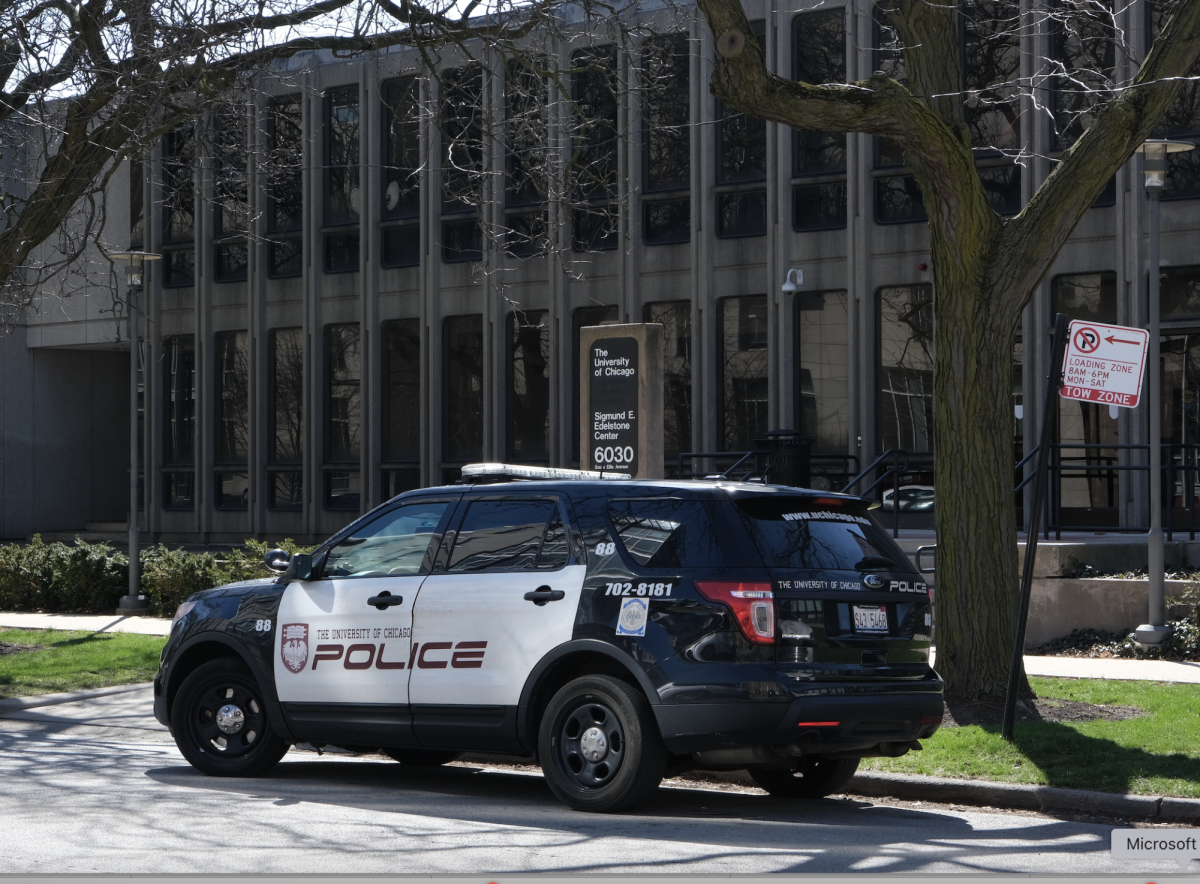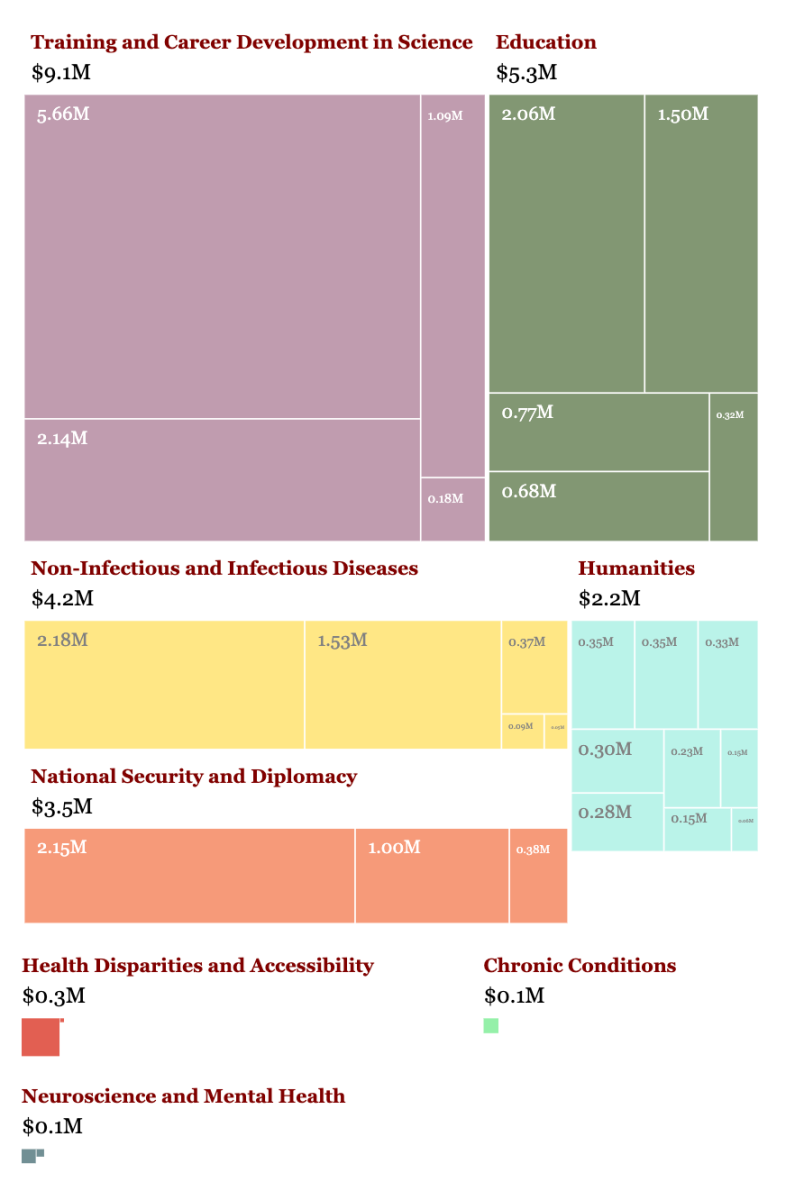When Kim Goff-Crews visited the University of Chicago for the first time in 2006, she got one of the infamous “Where fun comes to die” T-shirts. Then Dean of Students at Wellesley College, Goff-Crews came to campus thinking, as many do, that the maxim was true. “I knew about the rigorous inquiry, although I didn’t define it as that—I defined it mostly as: ‘They really work hard there,’” she said in an interview in November. What she remembers wondering is: “Do they have fun?”
Setting the tone for her career at the U of C, Goff-Crews found the answer with the help of a committee—in this case, the committee that hired her. Martha Roth, head of the hiring committee and dean of Humanities, told her about the massive project begun in the mid-’90s to reinvigorate student life, including housing, athletics, career services, and student organizations. Goff-Crews said it was this project that got her interested in working at the U of C: “I was really fascinated by what that might look like at a Research-I institution that is known for its academic rigor.”
Since she was hired in 2007, Vice President of Campus and Student Life (CSL) Goff-Crews has made some major changes in line with this project: the implementation of gender-neutral housing, the reworking of the Student Care Center, and the creation of the Student Life Fee among them. Goff-Crews is also in charge of more than her predecessors were. Her title reflects a recent shift in the goals of the office. “Part of what you want to look at for a research institution is that you have a sense of community, community as a whole: faculty, students, and staff together,” Goff-Crews said.
This is the latest development in an institutional shift that began in 1994, when then-University President Hugo Sonnenschein convened three task forces to consider ways to improve student life and education. The University faced a budget deficit of $23 million—in part because it enrolled very few undergrads—and student satisfaction was low; a study conducted for the review indicated that 35 percent of undergraduates took steps toward leaving Chicago during their undergraduate career. Trustees, administrators, and faculty, including current University President Robert Zimmer and Dean of the College John Boyer, looked at three sweeping issues: undergraduate education, graduate education, and student life. The bodies deliberated for 18 months, finally issuing three reports that changed how the University saw itself.
The College was not receiving the attention it needed, the reports said. They also included many recommendations for creating a less stressful, more accommodating community and fostering “an institutional philosophy that clearly values students.” Most of the recommendations were put into effect—career services were improved, first-year orientation was expanded, and the administration and News Office began focusing on student accomplishments, in addition to Nobel Prizes. A spate of new buildings was constructed to provide more relaxed spaces: The Max Palevsky dorms, Ratner Athletic Center, and the South Campus Residence Hall have since been built, and the Reynolds Club, Bartlett Commons, and Harper Library have been renovated.
By 2001, the burgeoning number of student services required a new position “to better coordinate and advance this work,” said Bill Michel (A.B. ’92), assistant vice president for student life. Michel, who was brought into the Office of Student Life around this time, said the office took on a greater role as time went on. In 2007, it was clear that the Office of Student Life was doing more than its title implied. Goff-Crews was hired as administrators realized “work with staff, faculty, and members of the community…is a really important component to the campus-wide role that we play,” Michel said.
Making connections across the University has been a hallmark of Goff-Crews’s administration. She meets with faculty, all levels of administrators, Student Government (SG), and her deputies and staff. She also goes to games and performances on campus to hear from students, and invites them to come talk at her office. “It’s a vast set of services,” Goff-Crews said of her department. “We think about where you eat, sleep, play,…pray, and pay. It requires a really wonderful network of programs and services and a good collaboration with the deans of students and the heads of the units to make that network work.”
“She’s very strategic—she’s very good at listening to people and helping people to think about their goals,” said Michelle Lepore, a colleague of Goff-Crews at Wellesley, where she began a reevaluation of the College that continues today. Within the U of C, Michel said, “there has been a real effort…to look for connections across these offices, and to make sure good collaboration is happening.”
The implementation of gender-neutral housing—Goff-Crews’s first major initiative—is a good example of how she works. Before Goff-Crews’s arrival, Michel said, “If a student came to us with a concern, we would often listen to that concern, create a committee, have that committee make some recommendation, and [finally] implement those recommendations.” When students proposed gender-neutral housing, Goff-Crews took it through an even more elaborate process; the committee’s recommendation was not implemented right away, but vetted through student forums and private meetings with members of the campus community, including faculty and religious groups. “I generally like to make sure that once I’ve identified a problem, I’m getting a lot of input from a lot of different people,” Goff-Crews said. “It’s sort of a call-and-response for me.”
But students who wanted a quick passage of the gender-neutral housing proposal complained, citing the delay the extra talks entailed. In May 2008, Nassira Nicola, then a second-year Ph.D. student who had been involved in developing the proposal, told the Maroon, “I understand that [Goff-Crews] is a strong believer in the power of consensus, but I’m not convinced that faculty members who are interested in student life on campus are interested in what goes on in dorms, and I’m not convinced that they want, need, or deserve input.” Goff-Crews said that when she talked to students to explain why the process took so long, she told them, “This is the way I make a decision.”
Last spring, Goff-Crews gave the same explanation to another group that criticized her process. Goff-Crews calls SG a “key partner,” and consults the body often. “It’s almost what defines the effectiveness of SG—how much the administration is willing to gauge its opinion and how much they’re willing to take that opinion into account when they’re making decisions,” said former representative and third-year Mark Redmond.
When Goff-Crews decided to consolidate the charges that pay for student activities into one Student Life Fee, Redmond wrote a resolution decrying the fee’s lack of transparency and the administration’s failure to openly consult students before the plan took effect. Goff-Crews had met with the SG cabinet about the plan twice, and, while the cabinet members protested, they agreed to keep the conversation confidential.
Matt Kennedy (AB ’09), last year’s SG president, was part of this and other meetings with Goff-Crews. “Did I come out of the meetings feeling like we were going to change student life on campus? No, not often,” he said. “Did I feel informed about what was going on in the University? Yes. Did I feel like I had at least a say in what was going on on campus, even if it wasn’t really addressed? Yes.”
SG passed Redmond’s proposal, asking Goff-Crews to attend a meeting to hear its reaction in person. She listened to representatives’ comments but said modifying the bill was an administrative decision, and that it was final. Afterward, however, the details of the charge were placed online. Goff-Crews said she is now rethinking what makes a decision pertinent to SG.
Goff-Crews maintains a positive working relationship with SG; she and CSL continue to reach out to different groups. “While we had begun some of the work with graduate students before [Goff-Crews’s] arrival, it was really after her arrival that it has really taken off,” Michel said. CSL has also begun planning some events differently—most notably, the family-friendly election night celebration in November 2008. “We’re now asking ourselves, ‘When are we doing events with just students, when are we doing events that are for students, staff, and faculty, and what happens when you create more opportunities for that interaction?’” Michel said.
Goff-Crews said much of her tenure so far has been spent learning the lay of the land, what the University of Chicago is about, and what the students want. “What I’ve discovered is that there are different definitions of fun,” Goff-Crews said, “and that students do have fun. So part of what I think is more interesting for me both internally and externally is to show the wide range of what students actually do, how they live their lives, the passion with which they live their lives, which is, I think, indicative of more than that phrase ‘Where fun comes to die.’ I don’t know if I want to change it, because it’s so particular to this institution. I want to amplify it, and explain the wide range of what they’re actually doing.”







